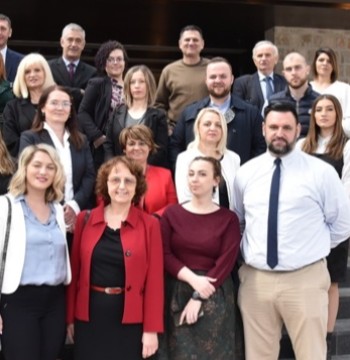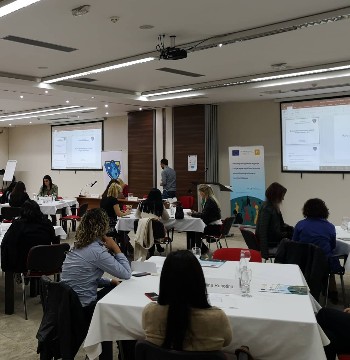Improving the media narrative on migration through dialogue
From 9th to 12th May, a regional workshop called "Improving the media narrative on migration through dialogue" that brought together representatives of government institutions, media and NGOs from Montenegro, North Macedonia, Serbia and Bosnia and Herzegovina was held in Budva, Montenegro. The organisers of the event are Hilfswerk International and the Association for Help and Development HAJDE, in cooperation with the Ministry of Security of Bosnia and Herzegovina, and it was held as part of the project "Reducing irregular migration to the EU by strengthening the capacity of migration-related structures in the Western Balkans".
The fact is that a varied set of actors creates, expands, and reinterprets migration stories, including policymakers, civil society, international organisations, traditional and social media, and migrants themselves. As a result, narratives on migration are very often the result of information containing competitive 'knowledge claims' about the causes and consequences of migration. This leads to the formation of different views on political and security problems, as well as on solutions. As highlighted during the workshop, due to all of the above, an understanding of the way political and media narratives are constructed and how they interact with each other is required.
The aim of the workshop was to discuss the main actors in the migration process, analyse mechanisms that shape the public's perception of migration issues, find out how to ensure objective and clear information delivery to the general public about all migration challenges, and how to prevent the emergence of misleading narratives that create a negative perception of migrants.
One of the general conclusions is that the dominant narratives on migration are predominantly negative in all Western Balkan countries, and participants focused on finding a way to create positive changes in the future. The importance of regional cooperation and information exchange was highlighted, which will open up space for dialogue and improvement of different agendas concerning the migration process, both at the institutional level and between NGOs and the media.
During the discussion, the participants emphasised the importance of ensuring a flexible space in which all participants in the region will be able to discuss all aspects, opportunities, and challenges related to migration and together analyse and discuss all issues, share policy and practice, and propose innovative solutions.
The project "Reducing irregular migration to the EU by strengthening the capacity of migration-related structures in the Western Balkans" is co-financed by the Asylum, Migration, and Integration Fund (AMIF) and the Federal Ministry of Internal Affairs of the Republic of Austria, and implemented by Hilfswerk International and local partner Association HAJDE.


